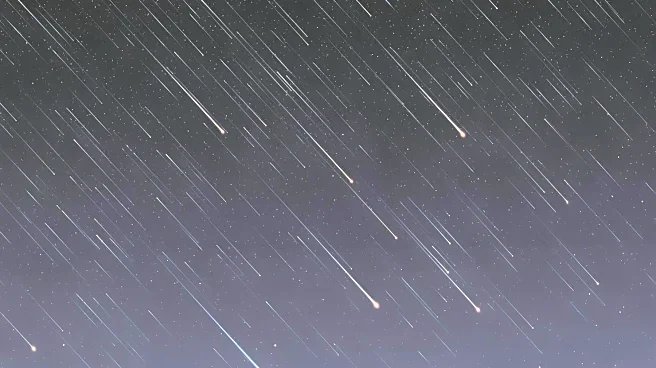What's Happening?
November is set to be an exciting month for astronomy enthusiasts, with three meteor showers gracing the night sky. The Northern Taurids, Southern Taurids, and Leonids are the showers to watch, with the Southern Taurids already
active since September 20 and the Northern Taurids since October 20. The Leonids will begin on November 6. These showers are known for their potential to produce bright fireballs, particularly the Southern Taurids, which peak on November 4-5. The Northern Taurids will peak later on November 11-12, while the Leonids, originating from the Leo constellation, are expected to be the most active, peaking on November 16-17. Observers are advised to find locations away from light pollution to maximize visibility.
Why It's Important?
Meteor showers offer a unique opportunity for public engagement with astronomy, fostering interest in space science and celestial phenomena. The visibility of these showers can be affected by light pollution, making it a reminder of the importance of dark sky preservation. The Leonids, in particular, have historically produced intense meteor storms, highlighting the dynamic nature of space debris interactions with Earth's atmosphere. These events can inspire educational activities and community gatherings, promoting scientific literacy and appreciation for natural wonders.
What's Next?
As the meteor showers progress, enthusiasts are encouraged to prepare for viewing by dressing warmly and finding dark locations. The Southern Taurids, peaking during a supermoon, may be less visible due to increased light pollution, making the Northern Taurids and Leonids more favorable for observation. The Leonids, known for their potential intensity, will be closely watched for any unexpected meteor storms, which could provide valuable data for astronomers studying cometary debris and atmospheric interactions.
Beyond the Headlines
Meteor showers like the Taurids and Leonids offer more than just visual spectacle; they provide insights into the composition and behavior of cometary debris. The study of meteors contributes to our understanding of the solar system's history and the processes that shape planetary atmospheres. Additionally, these events highlight the importance of preserving natural night skies, which are increasingly threatened by urban light pollution.









